Despite the efforts of the Ortega-Murillo dictatorship to use international spaces to tell a story untrue to the reality in spaces where it cannot manipulate the truth, trying to minimize attention towards the situation in Nicaragua, the international community continues to acknowledge the reality that has been lived by nicaraguans since 2018.
On February 13th, the European Parliament (EP) approved a resolution condemning the repression by the Ortega-Murillo family against human rights defenders, political opponents and religious communities.
Last week the Group of Human Rights Experts on Nicaragua (GHREN), in the framework of the 58th session of the United Nations Human Rights Council, presented an update of its report on Nicaragua.
Both the EP resolution and the GHREN report share as a common denominator that, since 2018, the situation in Nicaragua has progressively and systematically worsened. The list of violations continues to grow and the Nicaraguan State, to maintain absolute control, functions as a repressive machine against the population.
It is no coincidence that during the presentation of the GHREN report, among the few countries that defended the Ortega-Murillo regime, were the most recognized dictatorships in the world, North Korea, Iran, China, Russia, Cuba, Venezuela and Belarus.
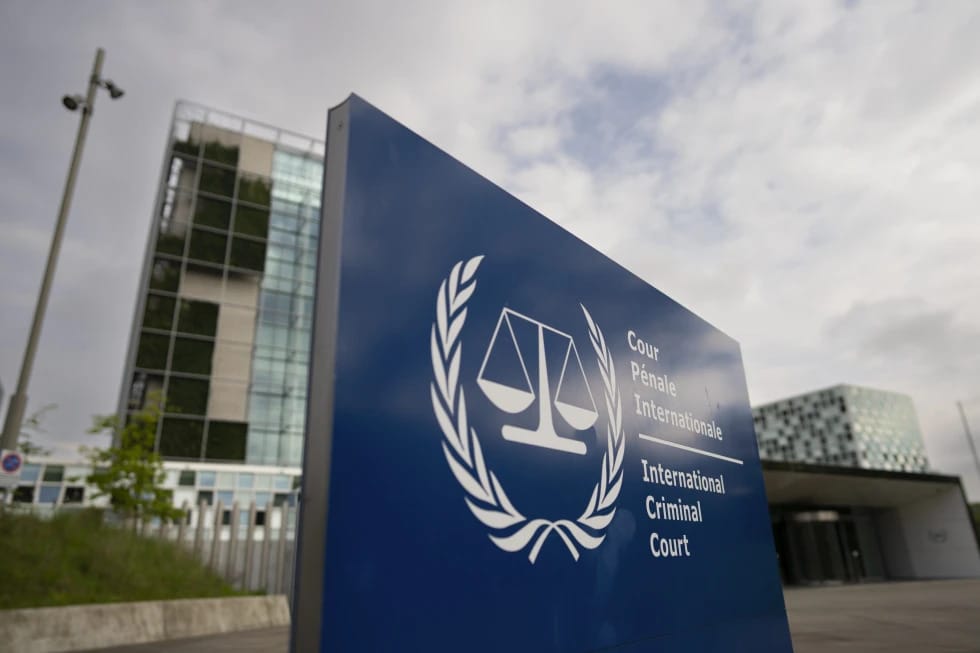
The report asks us to not be indifferent
Non-interference was the shield used by those dictatorships to defend the violations committed by their Nicaraguan counterparts, and those they commit. However, they came up against the principle of non-indifference respected by the great majority of countries that defend democracy and condemned the abuses of the Ortega-Murillo family.
What characterizes the recommendations of the GHREN and the EP reports is this call not to be indifferent and above all to act, both even share the majority of suggestions. They also make a strong appeal to the international community and especially to countries that stand for democracy and the rule of law. They call on them to stop being witnesses to this crisis and to act by taking concrete measures to stop the abuses and ensure that the perpetrators are held accountable for their crimes. Moreover, GHREN is convinced that “the longer the international community delays in taking firm action, the greater the burden will be”.
GHREN calls for a country or group of countries to take the Ortega-Murillo regime to the International Court of Justice (ICJ), under the Convention on Statelessness, and the EP advises denouncing them to the International Criminal Court (ICC) for their crimes against humanity they’ve committed.
In the case of the ICJ, Nicaragua is one of the countries that has resorted to it the most. So, the disdain they show for international human rights mechanisms would be put to the test if they denounce the Ortega-Murillo family in a court they have used so much.
Another shared recommendation is that, to counter Nicaraguan state repression, they should strengthen support for civil society, independent media and human rights defenders. The GHREN even points out the need to increase financial and technical assistance. They consider that the contribution of these groups is fundamental and that they are needed.
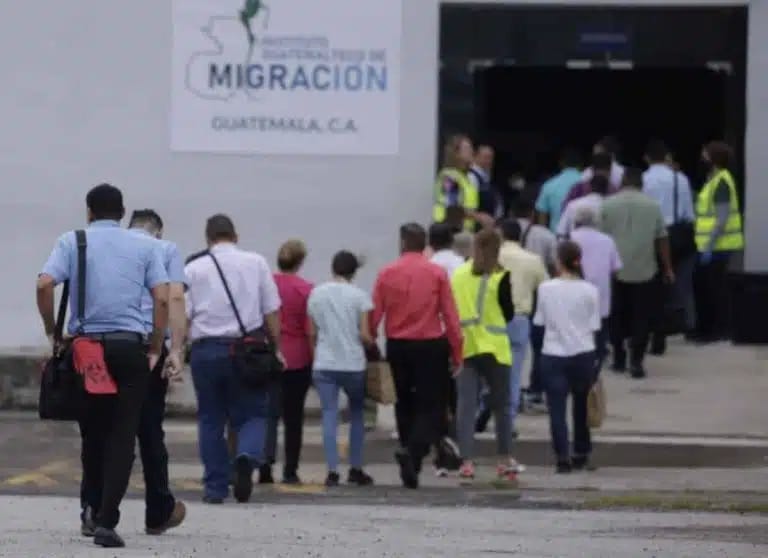
Expand sanctions and restrict markets
The EP resolution requests to expand the list of sanctioned persons to include Ortega, Murillo and their close associates. The GHREN report calla to increase legal actions and sanctions against the persons, institutions and entities responsible for the abuses.
The last recommendation they share is that Nicaragua’s preferential access to markets be conditioned to human rights parameters. That means to suspend some rights granted by DR-Cafta and the Association Agreement with the European Union.
The GHREN requests that the conclusions of its report be taken into account in the Article IV Consultation of the International Monetary Fund (IMF) and in recommendation 8 of the Financial Action Task Force (FATF) used to justify the massive cancellation of Non-Profit Organizations.
A unilateral suggestion of the GHREN is the need to protect Nicaraguans deprived of nationality, expelled and denied entry to the country.
From the Nicaraguan Democratic Concertation (CDN), we thank you for these invaluable contributions to the struggle for democracy, we hope that these recommendations will be promoted by the international community, and we join the countries and organizations that call for the renewal of the mandate of the GHREN and the Office of the High Commissioner at the current session of the Human Rights Council.
The unified machinery for repression by the Ortega-Murillo family
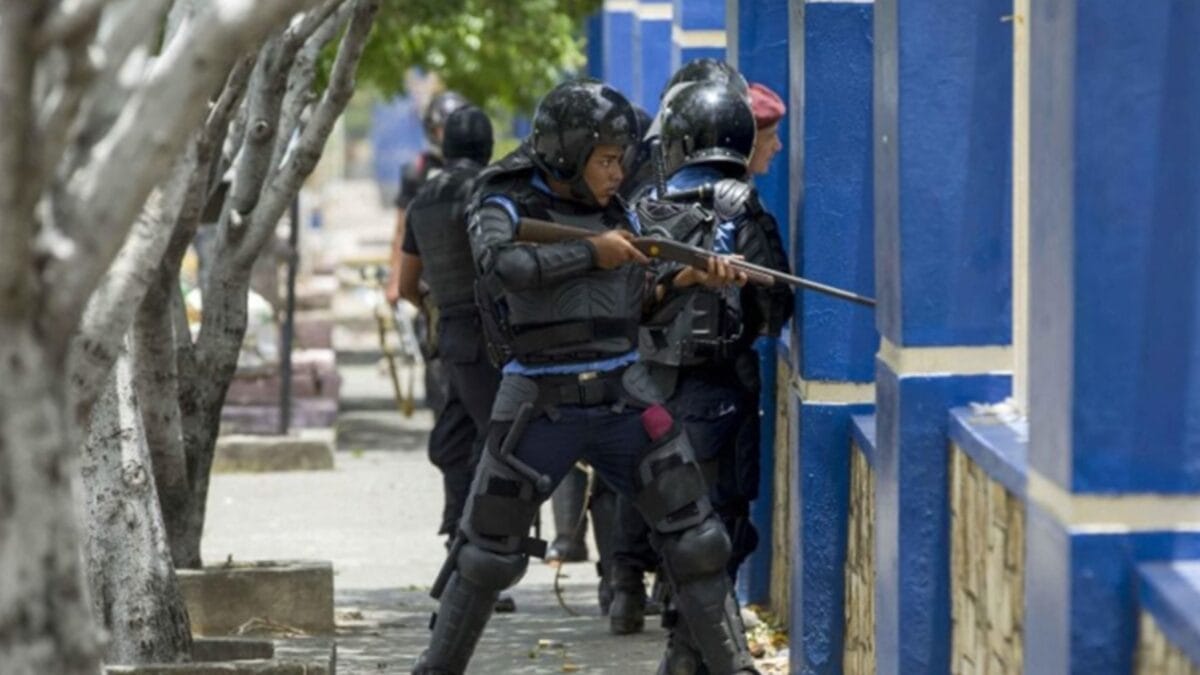
Almost seven years after the beginning of the human rights crisis facing Nicaragua, the Ortega Murillo dictatorship continues to perfect the mechanisms of repression and consolidate its totalitarian power. With the purpose of subjugating the citizenry in order to exercise its power and full control, it placed all institutions at the service of controlling society and consolidated a unified machinery of repression.
The repressive model changed from a police state to a State of Terror. The mechanisms of coercion, manipulation, intimidation, surveillance, discrimination, regulation, propaganda, economic management and imposition of the official ideology, turn each citizen into his own policeman, paralyzed by fear, even of thinking and waiting for his life and subsistence to be affected at any moment, with or without cause.
The updated report presented by the Group of Human Rights Experts on Nicaragua (GHREN) at the end of February in the framework of the 58th session of the United Nations Human Rights Council, identifies four phases of repression.
The first was characterized by the violence with which the protests were neutralized and the number of dead, wounded and imprisoned. The second was more selective, focused on arbitrarily arresting and prosecuting opponents who could hinder Ortega’s third reelection. In parallel, it continued to close spaces for civic participation, freedom of expression and pushed thousands into exile.
In the third they put an end to any vestige of opposition. They elevated the repression against the Catholic Church, which included the arrest and banishment of religious leaders, including three bishops, and former collaborators. In addition, with the closure of thousands of Non-Profit Organizations (NPOs) and political parties, they annulled the spaces for political participation.
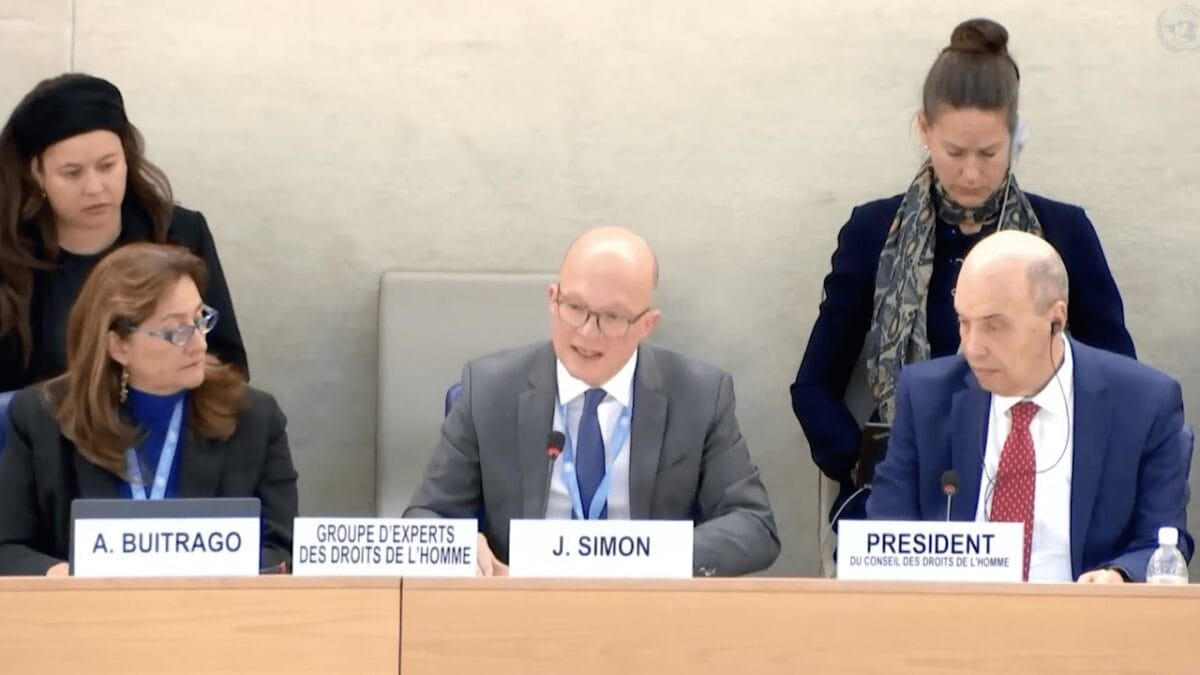
The goal is to eliminate all criticism
GHREN considers that now, in the fourth phase, the goal is to eliminate all criticism and consolidate the Ortega-Murillo’s absolute control over State entities and the population.
The refinement of the mechanisms of repression includes the expulsion and prohibition of entry of hundreds of Nicaraguans, who are arbitrarily deprived of their nationality. In addition, they accelerated the confiscation of assets from organizations and individuals who have been victims of repression, subjected companies to fiscal terrorism and denied rights, public services and social benefits to opponents.
Systematic repression consolidated absolute power over the population through widespread repression and an extensive network that includes surveillance, harassment, arbitrary detentions, unfair trials and forced disappearances.
This scheme involves the FSLN party and the entire State apparatus and is regulated by a totalitarian Constitution that recently came into force. It undermines the protection of fundamental rights and grants unlimited and absolute powers to the Ortega-Murillo family, now under the figure of co-presidents.
With their new Constitution, the Ortega-Murillo regime consolidated their dynastic power, annulled the separation of the Legislative, Electoral and Judicial powers and with it, annulled the counterweights characteristic of democracies. They eliminated the constitutional prohibition to censor the media, and by subordinating freedom of expression to security, peace and welfare, they closed any possibility to debate and disseminate truthful information.
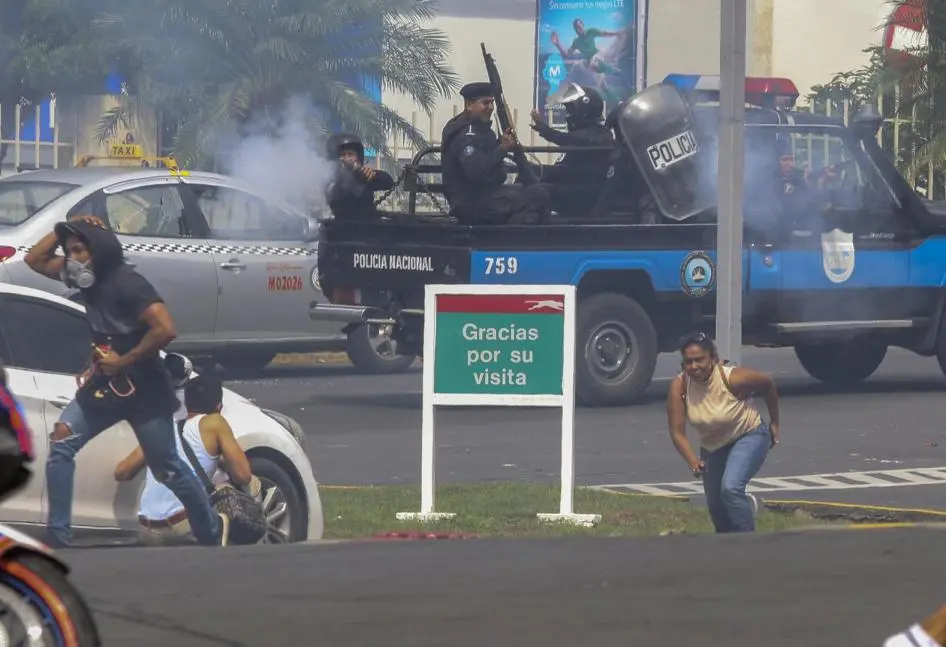
Ortega and Murillo are at the core of the repression
The Ortega-Murillo dictatorship constitute the core of the repressive structure and their collaborators play vital roles in the transmission of instructions and chain of command of the different levels of its immense repressive apparatus.
The Ministry of the Interior and its various branches, as well as the Police and the Army, play a fundamental role in human rights violations and are always ready to act when subjugation by terror is not enough to guarantee social control.
This occurs while the international community continues to ignore the recommendations of international human rights organizations that, given the seriousness of the abuses, suggest activating the mechanisms of international justice, so that Daniel Ortega, Rosario Murillo and their accomplices pay for the crimes they commit and stop their permanent violations of human rights.
Faced with the increase of repressive mechanisms by the Ortega-Murillo dictatorship, the Nicaraguan Democratic Concertation (CDN), joins the call of the GHREN that asks countries to stop being witnesses and move to urgent global action, putting into practice the recommendations that they, the European Parliament and other international organizations make to stop these abuses, but also to ensure that those responsible are tried in international courts.
